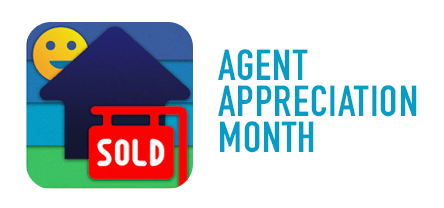 It’s Agent Appreciation Month here at Inman. Join us to celebrate all that agents do, all month long. Craving total access? Take advantage of our Agent Appreciation Sale, and subscribe to Inman Select for only $99.
It’s Agent Appreciation Month here at Inman. Join us to celebrate all that agents do, all month long. Craving total access? Take advantage of our Agent Appreciation Sale, and subscribe to Inman Select for only $99.
Thousands of real estate agents received an alarming email from Facebook’s parent company, Meta, which once again changed the rules of engagement for one of its most popular features — Facebook Marketplace.
The platform announced on Dec. 29 that users will no longer be able to share property listings on Facebook Marketplace with their business profile, a rule that California-based social media strategist and consultant Katie Lance said pushed real estate agents in her sphere to have a minor meltdown late last week.
“I know this caused a lot of hubbub and a lot of emails,” she said in a YouTube short explaining the startling announcement. “But there’s only one change.”
Lance said Facebook’s ill-worded announcement led confused real estate agents to believe they would now be barred from posting for-sale or rental listings on Facebook at all. However, she said the policy only prohibits posts from business profiles — meaning real estate agents can still share listings on Facebook Marketplace through a personal profile and share listings as usual on their business pages.

Katie Lance
“I think the way it was communicated was really confusing,” she said. “A lot of agents and brokers were kind of freaking out about it because the way it was worded was like, ‘Oh, you can’t post about it on your business page anymore,’ which is not what they meant.”
Facebook hasn’t provided an exact explanation for the shift and did not immediately respond to questions about how the new policy will work. However, Lance said the email’s mention of “person-to-person listings” hints at the company’s goal to push Marketplace back to its original intent as a modern, more professional version of an early-aughts favorite, Craig’s List.
“I can only speculate, but I think they’re probably trying to streamline Facebook Marketplace a little bit,” she explained. “They’re probably trying to get away from businesses posting a car, a rental, or whatever it might be because Marketplace was originally designed for individuals who are selling their sofa. And from my experience, there’s a lot of spam that happens inside of Facebook Marketplace, too.”
Outside of eliminating spam and reducing confusion about who listings belong to, Lance said the change was also likely influenced by Facebook’s long history of fair-housing issues.
Facebook’s fair-housing woes started in 2016 when the Department of Housing and Urban Development (HUD) began probing the impact of the platform’s ad filters that allowed users to target ads based on ethnic affinity, age, gender, physical ability and several other identities protected under the 1968 Fair Housing Act. In 2019, HUD and the Department of Justice formally charged Facebook with discrimination, forcing them to overhaul their advertising platform.
“Within real estate, there’s always the hot-button issue of fair housing,” Lance said, hearkening back to Facebook’s fair housing saga. “And, as you know, Facebook ads [have] been limited over the last few years in terms of what you can do with targeting.”
Beyond getting a slap on the wrist from HUD, Boardman Realty broker-owner and Inman contributor Teresa Fisher Boardman said agents should make sure they’re not violating their state’s advertising rules.
“Agents should pay close attention to the rules their state’s department of commerce has regarding how agents advertise homes for sale,” she said on Inman Coast to Coast.
The verbiage varies by state, but the rules often address issues of clarity and transparency — something that’s easily clouded on social media. For example, the Minnesota Department of Commerce requires all for-sale listing advertisements to have two elements:
- “Any advertising by a licensee must clearly and conspicuously display the real estate brokerage name.
- If a salesperson or broker is part of a team or group within the brokerage, the licensee may include the team or group name in the advertising only under the following conditions: The inclusion of the team or group name is authorized by the primary broker of the brokerage to which the salesperson or broker is licensed, and the real estate brokerage name must be clearly and conspicuously displayed in the advertising.”
However, Lance said the rule change, albeit scary on its surface, should create a more straightforward experience for all users.
“I don’t foresee them just taking down all listings that were posted by a business on that day,” she said. “I could be wrong, but usually the way things happen is it sort of rolls out gradually. But, they might remove them all that day, so I would just say agents or brokers need to be prepared for that.”
If you’re primarily dependent on Facebook Marketplace and are nervous about using a personal profile to post listings, Lance said there are plenty of other easier — and more effective — ways to advertise listings on Facebook.
“A lot of it comes down to photography and videos, which I know is not a new conversation,” she said. “It’s something we’ve talked about for a long time, but I still think it makes sense, if it’s within an agent’s or broker’s budget, to have properties professionally photographed. It’s always the best first impression.”
From there, she said you can use those photos and videos to make stories and reels — two proven methods of driving traffic and engagement alongside Facebook Live.
“You know, take a few little video clips, add some fun music, add a little bit of text, and you’ve created something really engaging and interesting,” she said. “Reels are a great way to reach people who don’t know you who might be interested who might be moving or buying or selling or looking for someone just like you. Facebook Reels are a huge area of opportunity.”
Lastly, Lance said real estate agents must remember that none of us own Facebook, Instagram, TikTok or any of the other platforms we’ve come to rely on for personal and professional connection.
“I’ve been in business with social media for more than 10 years, but I just feel like lately like it’s changing faster than ever,” she said. “Social media is rented ground. You don’t own it. We don’t make the rules. All you can do is adjust.”













